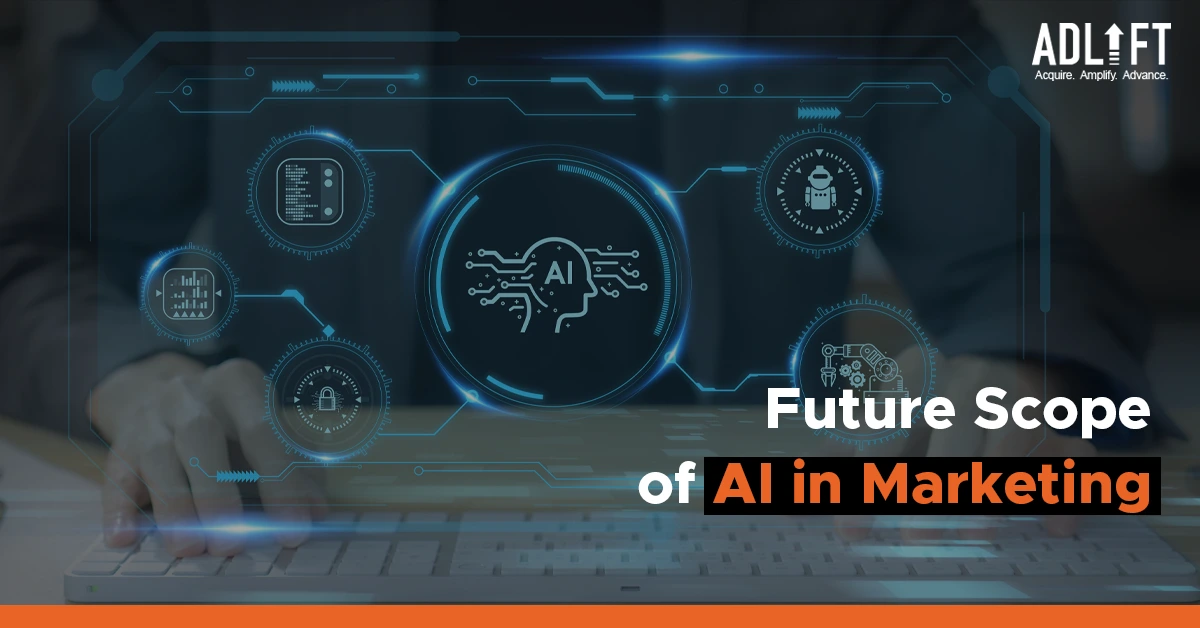The Future of Marketing: How AI is Changing the Game

Over the past few years, the field of marketing has experienced a remarkable shift due to advancements in Artificial Intelligence (AI) technology. The rise of AI-powered digital marketing has provided marketers with a potent instrument to delve into profound insights, automate tasks, and provide customized experiences to their customers. This blog delves into the exciting prospects of AI-driven marketing and the transformative impact it is having on the industry.
Enhanced Customer Insights: With the aid of AI-powered market research and algorithms, marketers are empowered to collect extensive data and extract invaluable insights. Machine learning algorithms have the capability to analyze customer behavior patterns, preferences, and purchasing history, facilitating the creation of comprehensive customer profiles. By leveraging these insights, marketers gain a deeper understanding of their target audience, enabling them to craft highly targeted and personalized marketing campaigns.
Predictive Analytics: AI driven marketing and predictive analytics are changing marketers’ decisions. By analyzing historical data, machine learning algorithms can predict future trends and customer behavior and identify potential churn.
AI driven digital marketing enables marketers to optimize their strategies and allocate resources effectively. With AI driven market research, they make data-driven decisions for better business outcomes.
Chatbots and Virtual Assistants: AI-powered chatbots and virtual assistants have revolutionized customer interactions. These intelligent bots can provide instant customer support, answer queries, and even assist in the purchasing process. By leveraging natural language processing and machine learning, chatbots offer a seamless and personalized customer experience, increasing customer satisfaction and retention.
Personalized Marketing Campaigns: AI driven digital marketing enables marketers to deliver highly customized marketing campaigns at scale. By analyzing a large amount of data, AI algorithms can identify individual customer preferences and tailor marketing messages and recommendations accordingly. This level of personalization enhances customer engagement and drives conversion rates.
Content Creation and Curation: AI-driven marketing transforms content creation and curation processes. AI-powered content curation tools can analyze massive amounts of data to curate relevant and engaging content for specific target audiences.
Natural Language Generation (NLG) algorithms can generate written content like blogs, product data, and social media posts. These AI-driven capabilities save time and resources while ensuring high-quality and relevant content delivery.
Enhanced Customer Targeting: AI helps marketers precisely identify and target the right audience. AI driven digital marketing enables marketers to optimize their advertising campaigns, increase conversion rates, and increase return on investment (ROI).
By leveraging AI algorithms, marketers can analyze data from various sources, including social media, browsing behavior, and purchase history, to create highly targeted audience segments.
Voice Search and Virtual Assistants: The rise of voice-enabled devices and virtual assistants like Siri, Alexa, and Google Assistant has transformed how people search for information and make purchasing decisions.
Marketers must accommodate their strategies to optimize for voice search and ensure their content is discoverable through voice-activated queries. AI driven marketing plays a crucial role in understanding natural language queries and delivering relevant search results.
Improved Customer Service: AI-driven marketing is revolutionizing how businesses interact with customers. Virtual agents can handle routine customer inquiries and provide personalized support 24/7. By leveraging AI, companies can improve response times, resolve issues faster, and provide a seamless customer service experience.
Marketing Automation: AI-powered marketing automation tools streamline duplicative tasks, such as marketing through emails, social media post scheduling, and campaign management.
These tools can segment audiences, personalize messages, and automate customer journeys, saving time and resources for marketers. AI-driven automation allows marketers to focus on strategy and creative aspects while ensuring consistent and targeted communication.
Fraud Detection and Security: AI algorithms can detect patterns and anomalies in real-time, helping businesses identify and prevent fraudulent activities. By AI driven market research from various sources, AI can detect suspicious transactions, flag potential security threats, and safeguard customer data. This enhances security measures and protects both businesses and customers from cyber threats.
Conclusion
The future of marketing is experiencing a significant change with the integration of AI. AI is revolutionizing how businesses engage with their target audience. It has evolved into a game-changer in the field.
By leveraging AI driven market research, machine learning algorithms, and natural language processing, AI empowers marketers to achieve valuable insights. AI-driven marketing personalizes customer experiences and optimizes their strategies in ways previously unimaginable.

